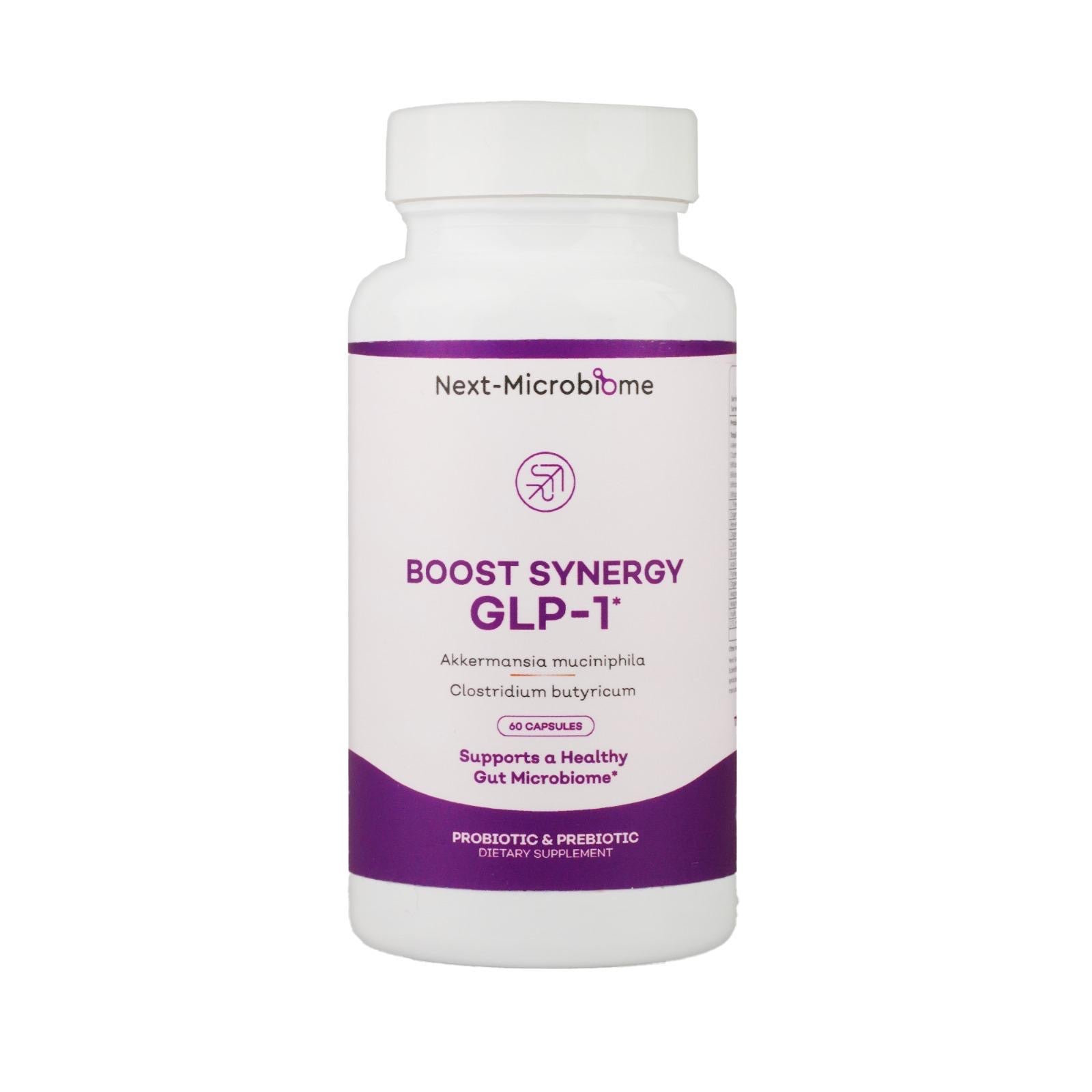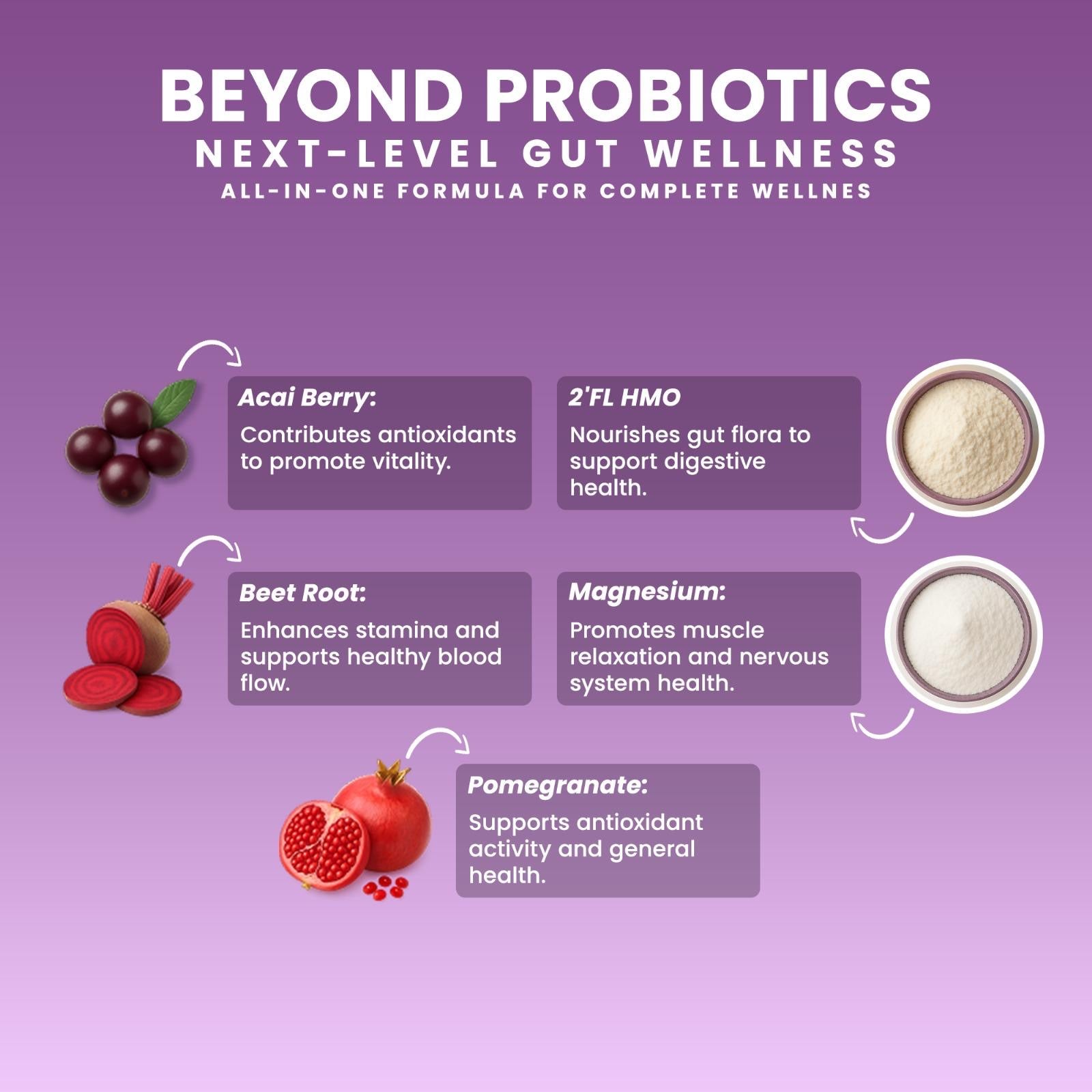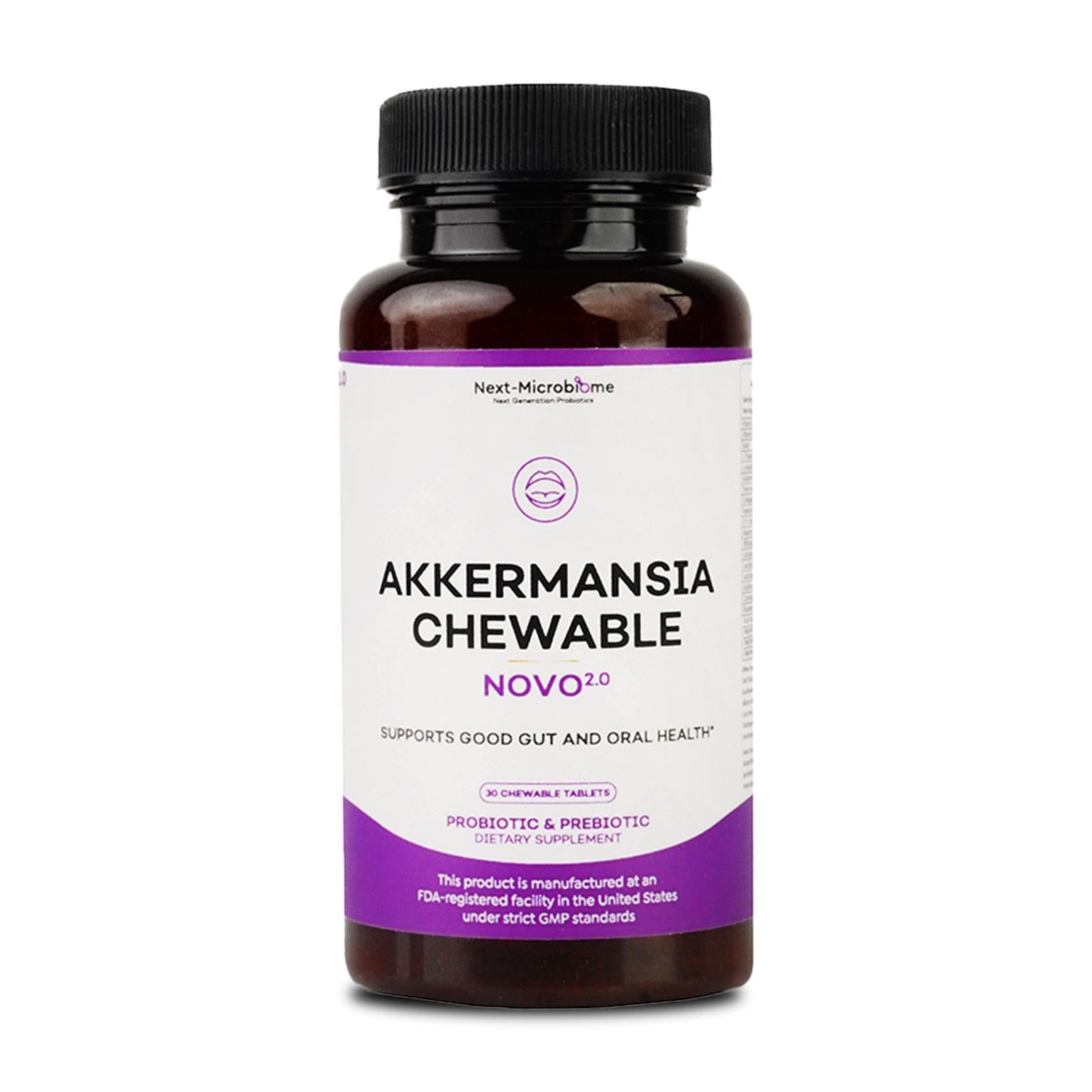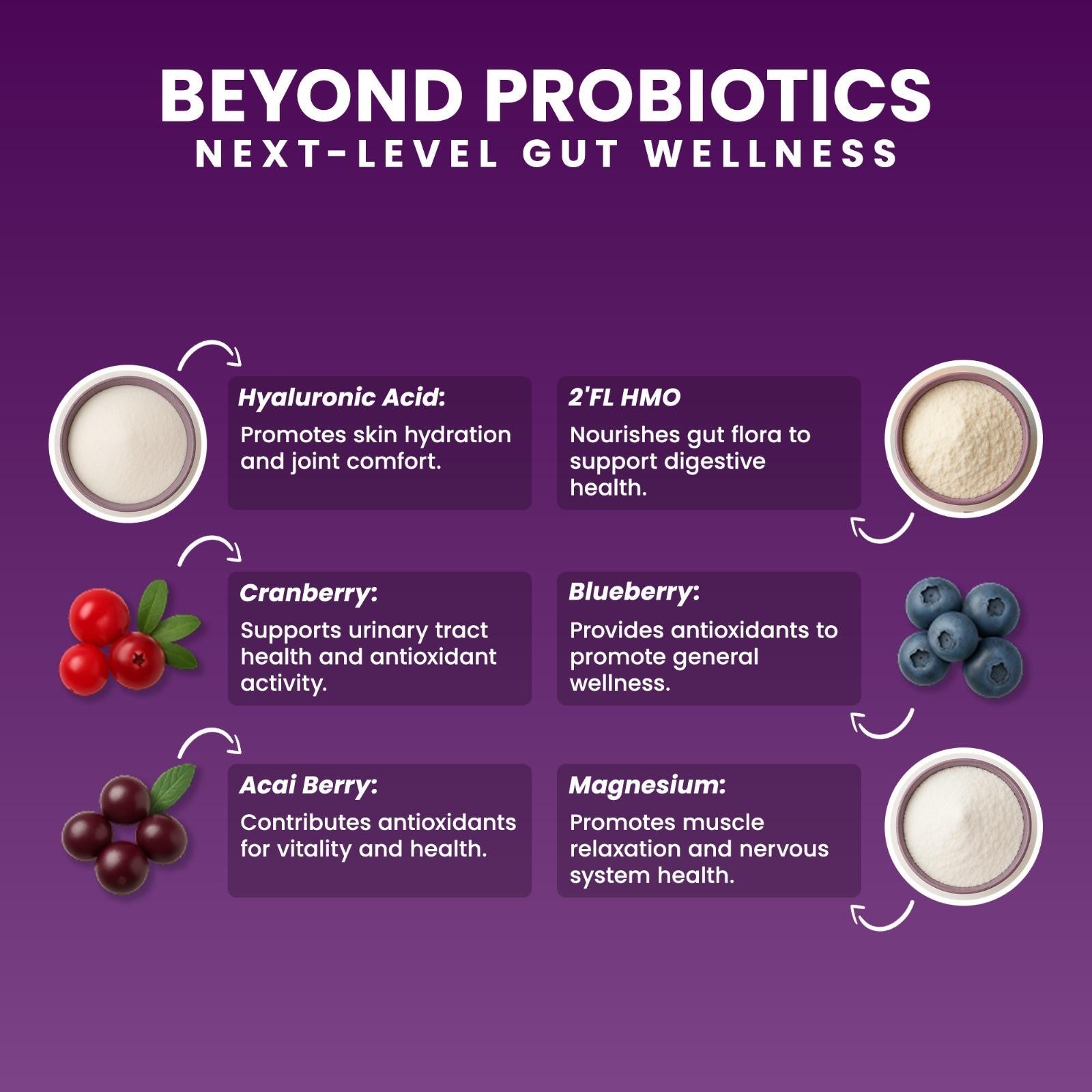
Akkermansia Probiotic for Digestive Health & Bloating
Probiotics for Digestive Health: Reduce Bloating, Strengthen Gut Lining & Improve Digestion
Digestive issues such as bloating, gas, abdominal discomfort, irregularity, and gut sensitivity are among the most common signs of a disrupted microbiome. This is why searches for “probiotics for digestive health,” “digestive probiotics,” “probiotics for digestive issues,” and “probiotics for stomach lining support” continue to rise.
Your digestive system relies on trillions of beneficial bacteria that help break down food, regulate gas, support bowel regularity, and maintain gut lining health. When this delicate ecosystem becomes imbalanced — due to stress, low fiber diets, antibiotics, or infections — digestive symptoms often develop.
Probiotics can help restore microbial balance, strengthen gut lining integrity, and support long-term digestive wellness.
Understanding Digestive Probiotics
Your gut microbiota directly impacts:
-
digestion quality
-
nutrient absorption
-
gut motility
-
gas and bloating
-
inflammation
-
intestinal health
A 2020 clinical study published in Nutrients found that taking specific probiotic strains helped reduce stomach pain, improved digestion, and supported a healthier gut.
Link: https://www.mdpi.com/2072-6643/12/2/363
Before exploring digestive-specific strains, it helps to understand how probiotics support the broader microbiome. For a full overview of probiotics for microbiome balance, read:
👉 Gut Health Probiotics: Improve Digestion, Microbiome Balance & Wellness
How Probiotics Improve Digestive Function
Probiotics influence digestive wellness through several mechanisms:
1. Reducing Gas & Bloating
Beneficial bacteria reduce fermentative gas and improve carbohydrate breakdown.
2. Strengthening the Gut Lining
Some strains reinforce tight junctions and support mucin integrity — essential for gut lining protection.
3. Supporting Regular Bowel Movements
Probiotics help optimize stool consistency and promote smoother motility.
4. Reducing Digestive Inflammation
A 2022 study in Gut Microbes showed that taking a daily probiotic reduced bloating, gas, and discomfort, helping digestion feel easier.”
Link: https://pubmed.ncbi.nlm.nih.gov/36269141/
5. Producing Short-Chain Fatty Acids
SCFAs like butyrate nourish colon cells and support intestinal resilience.
Together, these mechanisms make probiotics highly effective for digestive health.

Best Probiotic Strains for Digestive Health
Clinical studies show that certain strains offer targeted digestive benefits:
Bifidobacterium BB-12
Improves regularity and reduces digestive discomfort.
Bifidobacterium breve, B. adolescentis, B. bifidum
Support digestion, gut comfort, gas reduction, and microbial balance.
Lactobacillus species
Support upper GI health, occasional indigestion, and immune balance.
Clostridium butyricum
A butyrate-producing strain that strengthens gut lining integrity.
A clinical study published in Gut Microbes found that C. butyricum improves intestinal resilience and supports healthy inflammation patterns:
Link: https://www.ncbi.nlm.nih.gov/pmc/articles/PMC7471846/
These strains form the foundation of digestive probiotics.
Probiotics + Akkermansia: A Stronger Approach
Probiotics help digestion within the gut lumen, but Akkermansia muciniphila works deeper — in the mucin layer that protects the intestinal wall.
To learn why Akkermansia is crucial for gut lining support, read:
👉 Akkermansia: The Key to Gut Health, Microbiome Balance & Digestive Wellness
Probiotics + Akkermansia together help:
-
reduce digestive irritation
-
strengthen gut barrier health
-
improve nutrient absorption
-
stabilize digestion
-
support microbial diversity
-
improve long-term gut comfort
This powerful synergy is the backbone of many next-generation microbiome formulas.

Choosing the Best Digestive Probiotic Supplement
A high-quality digestive probiotic should include:
-
multi-strain Bifidobacterium + Lactobacillus
-
butyrate-supporting species such as C. butyricum
-
prebiotics like inulin, FOS, or HMO 2′-FL
-
polyphenols for gut lining support
-
clean, high-quality ingredients
These formulations support:
-
digestive wellness
-
intestinal stability
-
stomach health
-
microbiome development
-
smoother, more comfortable digestion
For a probiotic formula designed to support digestion and gut lining health, explore:

🟦 INTERNAL LINKS
❓ FAQ (6 Questions)
1. What probiotics are best for digestive health?
Clinically supported strains such as Bifidobacterium BB-12, B. breve, B. bifidum, and Lactobacillus species.
2. Do probiotics reduce bloating and gas?
Yes — certain strains decrease fermentative gas and improve digestive comfort.
3. Can probiotics support the stomach or intestinal lining?
Yes. Some strains promote butyrate production and strengthen gut barrier integrity.
4. How long does it take for probiotics to improve digestion?
Most people notice improvements within 1–3 weeks.
5. Should probiotics be taken daily?
Yes. Consistent supplementation supports stable microbial balance.
6. Do probiotics work better with prebiotics?
Absolutely. Prebiotics feed probiotics and enhance colonization.
Written by Ali Rıza Akın
Microbiome Scientist, Author & Founder of Next-Microbiome
Ali Rıza Akın is a microbiome scientist with nearly 30 years of biotechnology and translational research experience in Silicon Valley. He is the discoverer of Christensenella californii, a novel human-associated bacterial species linked to metabolic health and mucosal integrity.
His scientific work spans:
-
mucosal immunology
-
gut barrier biology
-
oral–gut microbiome interactions
-
SCFA metabolism
-
next-generation probiotics (Akkermansia, Christensenella, Clostridium butyricum)
-
host–microbe signaling
-
microbial therapeutics
He is the author of Bakterin Kadar Yaşa: İçimizdeki Evren (Live as Long as Your Bacteria) and a contributor to Bacterial Therapy of Cancer: Methods and Protocols (Springer, Methods in Molecular Biology).
As Founder of Next-Microbiome, Ali develops advanced synbiotic formulations — including the industry’s first chewable Akkermansia-supporting synbiotic — designed to strengthen the gut lining, support metabolic resilience, enhance mucosal immunity, and harmonize the oral–gut microbiome axis.











